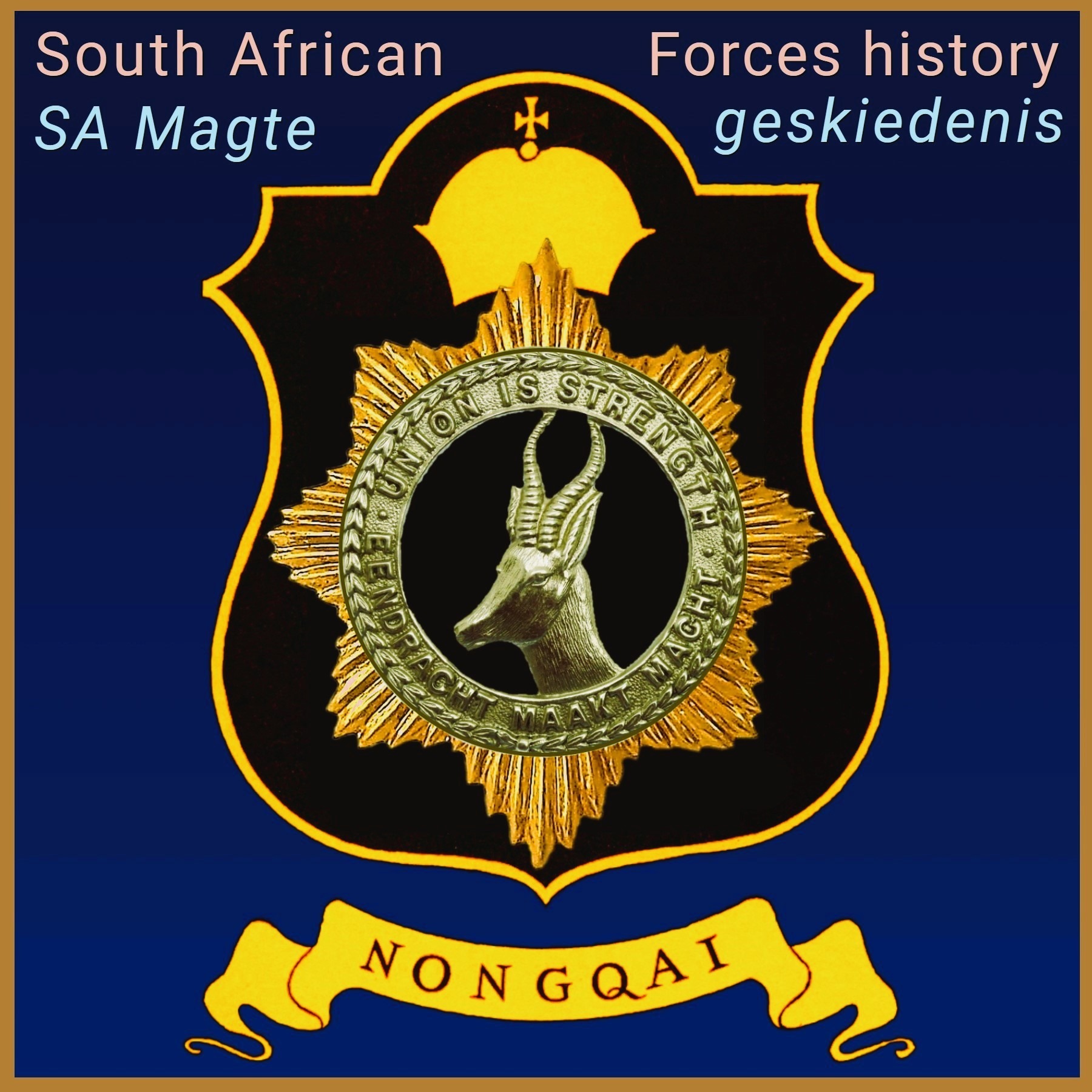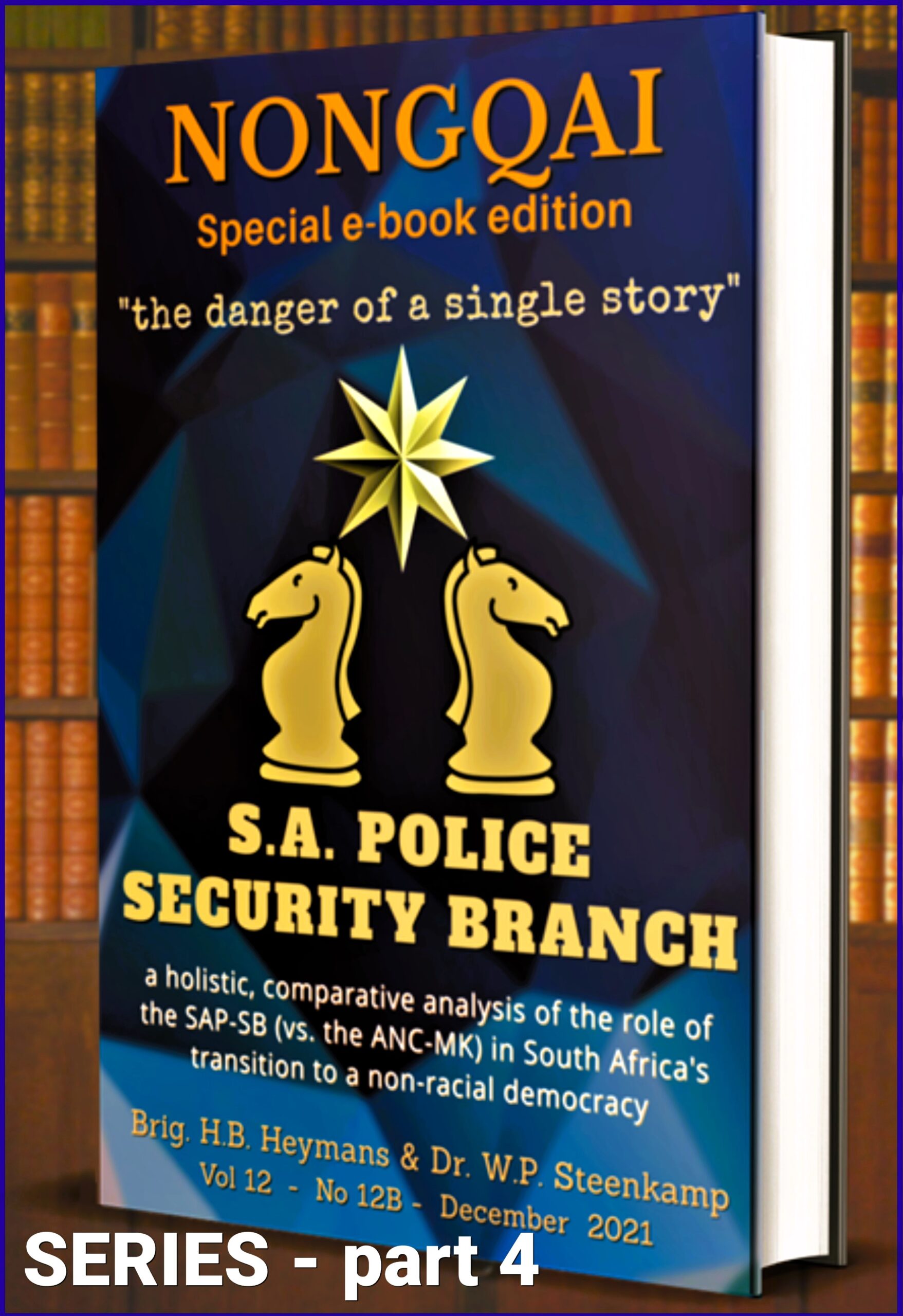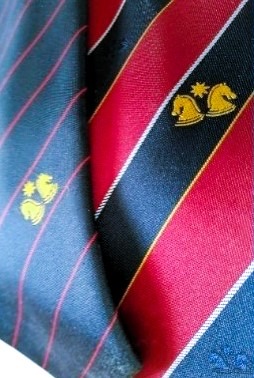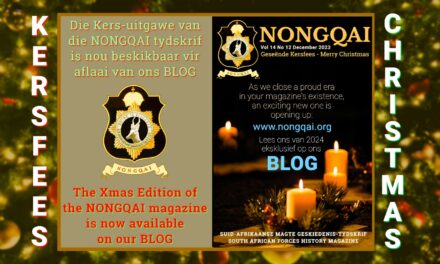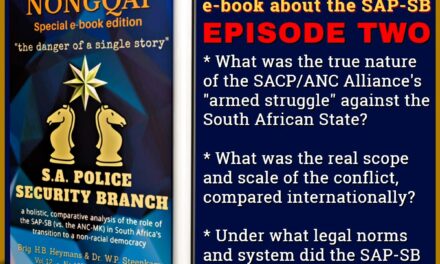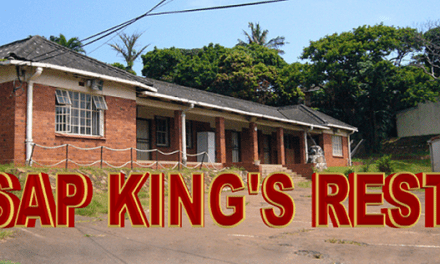ABSTRACT: S A Police Security Branch Series Part 4 – the fourth extract from NONGQAI’s eBook on the South African Police Security Branch and the armed struggle launched by the SACP/ANC-alliance. This chapter explores who and what the typical Security Branch officer was – as opposed to the crude stereotype found in the “single story”. Who were they? Why did they choose to serve in the SAP-SB? How did they see themselves, their function and the nature of the conflict they were involved in? What does history show, about their role in South Africa’s democratic transition?
FOCUS KEYWORD: S A POLICE SECURITY BRANCH SERIES Part 4
KEYWORDS: South African Police Security Branch; SAP-SB; SAP-SB logo; Major general Frans Steenkamp; ANC; SACP/ANC Alliance; South Africa democratic transition
AUTHOR: Dr Willem Steenkamp
THE PREVIOUS CHAPTER IN THIS SERIES (#3) CAN BE READ BY CLICKING ON THIS LINK:
S A POLICE SECURITY BRANCH SERIES PART 4
WHO WERE THE TYPICAL SAP-SB OFFICERS?
The men who led the SAP-SB at the height of South Africa’s internal conflict during the seventies and the eighties, had joined the South African police force mostly before the National Party government came to power in 1948.
Many of them had joined the police out of economic necessity in those financially difficult years of the 2nd World War and its aftermath, when the effects of war and the Great Depression were still felt – there wasn’t money for them to go and further their studies at university. Most of them were thus sworn in as young policemen, still under the British crown.
These men were schooled in the custom of serving their country, enforcing the laws that parliament had placed on the statute books. Doing so without party-political motives. This they continued to do, through the change of government in 1948, the transition from the British crown to the Republic in 1961, and eventually, the transition from the white-ruled state to the non-racial state from 1990 – 1994. In the latter case, ensuring the stability that was so sorely needed for the transition to succeed.
As recorded in the very outset of this book, my knowledge of who and what these men and women were, comes not from academic research. It was obtained very much first-hand (as the son of a security policeman, who became divisional commander for Port Natal, meaning Durban and Coast, and later commanding general of the entire SAP-SB: Major-General Frans Steenkamp; secondly, as myself the husband of a female SAP-SB member).
These were not ignorant, brutish “rock spiders” with no knowledge of the wider world (my wife, for example, was the dux scholar of her school in her matric year and a university graduate when she joined; my father obtained five distinctions in matric when he did the exam through home study, as an adult).
Economic hardship had meant that my dad, like many others during and immediately after WW2, had to leave school prematurely to join the police. In his chosen profession he first came to the fore as a top young detective, having solved the Joy Aken murder that had gripped the public imagination (Chris Marnewick recently wrote a noted book about him and that case).
Ronnie Kasrils, senior SA Communist Party and ANC-MK leader, wrote about my father in his book The Unlikely Secret Agent, relating an episode in Durban in 1963 when his fiancé Eleanor was detained and questioned by the SAP-SB, who were looking for him (Kasrils) in connection with the ANC’s sabotage campaign. Eleanor had threatened to go on a hunger strike, complaining to then Major Frans Steenkamp about her earlier interrogation by junior officers.
Kasrils says he was firm and correct, assuring her that she would be treated appropriately (that there would be no physical abuse or salacious language) but that she should abandon any thought of going on a hunger strike, since he wouldn’t want to see her with a feeding tube down her throat. Kasrils opined that it was clear to them that they were now dealing (in the person of someone like Major Steenkamp) with a different kind of security police officer of higher stature than what they had hitherto encountered, due to the government now deploying its top detectives to combat the sabotage campaign.
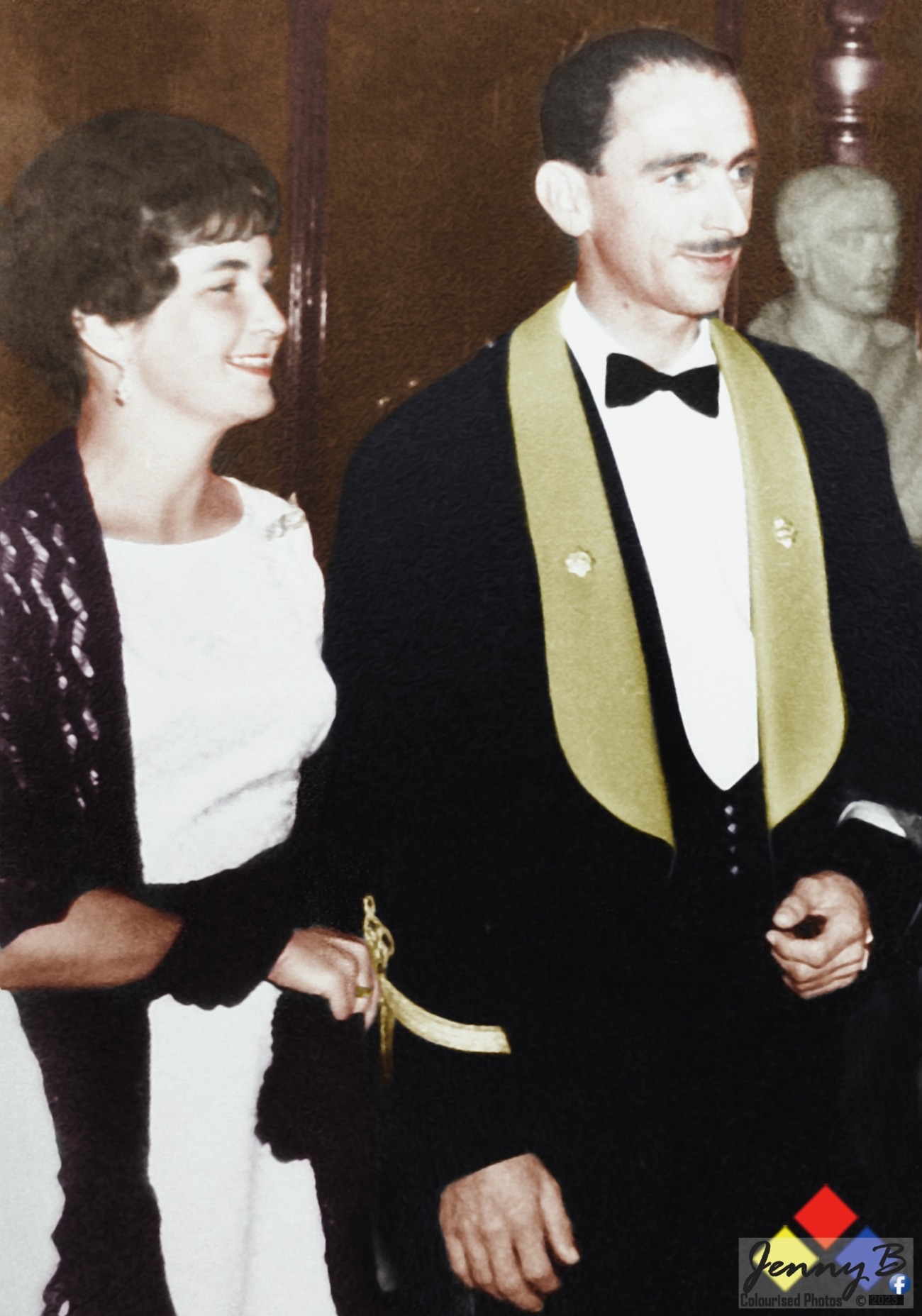
Frans and Maxie Steenkamp attending a formal event in the 1970s
I recall how, as myself a young student during those Durban days, I was often awed by our dinner guests – the West German consul, for example, had on one occasion brought with him his portable home-movie projector and had shown us a film about the Munich Olympics.
The Israeli consul general I remember as a charming man with an almost infinite stock of Jewish jokes (which resonated with us, because the Israelis and Afrikaners share the same kind of humour, joking about their own people). Another dinnertime raconteur of note was Natal attorney-general, Mr. Cecil Rees.
My father and mother (the latter a very accomplished athlete) were well integrated into local social circles, i.a. as club presidents (my father of the angling club, my mother of the tennis club).
My dad was well known and appreciated by local industrialists and captains of business. As a fluent Zulu speaker who had grown up in Eshowe in Zululand, knowing the culture, he had made a point of trying to understand the evolution of politics in black leadership circles. He had invested long hours of amicable conversations with Chief Albert Luthuli (Nobel peace laureate and ANC president) who had shared with him his concerns at the time about the “Johannesburg communists” wanting the ANC to embark upon armed resistance.
Also, with Prince Mangosuthu Buthelezi, who had been an ANC Youth League leader and then had split from the ANC, to form the Inkatha movement.
During his later years in Pretoria, my father obviously had many more engagements with international representatives, as well as with senior colleagues from the military, the South African Foreign Ministry, and the National Intelligence Service. Clearly these policemen like my father who came to lead the SAP-SB were highly intelligent, well read, open-minded, politically aware (both as regards international and internal trends).
They were not prejudiced and were willing to speak truth to power. It is a myth that they were doctrinaire apostles of racial supremacy, or all members of the Broederbond (my father certainly wasn’t a member). They took very seriously their constitutional function as investigators of crime, not makers of law / judge / jury / executioner. They proudly served the flag – the nation-state that employed them – and not the politicians as such.
This meant that they had to adhere to the laws and policies as handed down by the constitutional order of that time, thus obeying ministerial authority. But they were also obliged to provide their best advice – which they in fact did, even when politically contrarian.
SPEAKING TRUTH TO POWER
I fondly remember a story told by then minister of police Louis la Grange at a 1984 farewell dinner for my father. My dad had felt himself obliged to lay down his command and take early retirement at 55, based on this principle of having to either obey authority, or leave. His relationship with then President PW Botha and his militarised security establishment had become severely strained, through my father not sharing the same :total onslaught” vision about how best to deal with the worsening internal political conflict.
La Grange told that audience, with appreciation, that this general was the only one to have ever told him to his face in a conference: “Minister, nou praat jy sommer k@k” (Minister, now you are talking plain shit).
So, truth was indeed spoken to power by SAP-SB officers like him.
When the security situation further deteriorated in later years, my father did return to the police force that he so dearly loved, to serve in time of need the country that he loved even more – but in an individual consultative capacity. This position suited him perfectly, since he was contracted precisely for his personal insights and advice, which he could present unfettered by institutional command obligations.
It was in this capacity that he authored the February 1987 study mentioned in an earlier chapter, in which the government was advised that the “people’s war” could not indefinitely be suppressed by force. He had stressed that it should be understood that the struggle for black rights was primarily a political one, similar to what the Afrikaner had aspired to. It was therefore inappropriate to see a communist behind every bush. Thus, the conflict needed to be solved by the politicians, who couldn’t expect the police to do it for them.
Planning for and initiating negotiations should therefore be urgently considered, he advised – because the government’s bargaining position was only likely to worsen over time.
Since this study deals with the many allegations of extra-judicial killings that the “single story” attributes to the SAP-SB, it is appropriate to relate here one of my late father’s most serious clashes with a certain faction within the “security establishment” that Mr PW Botha had gathered around him. In early 1983 the American FBI had arrested then-commodore Dieter Gerhardt of the S.A. Navy in the USA, having unmasked him as a spy of the Soviet military intelligence service, the GRU. After 11 days of interrogation there, Gerhardt was flown to Johannesburg under escort, to be handed to the SAP-SB (being the FBI’s local equivalent). There were very senior voices suggesting that the SA Defence Force, the darlings of the then prime minister, could be saved a lot of public humiliation if Gerhardt simply “disappeared”.
This was complete anathema to my father, who insisted that the man may indeed be a despicable traitor, but that he nevertheless was entitled to due process and thus to his day in court, facing high treason charges. My father then went ahead to make arrangements to ensure that very senior SAP-SB officers would take direct charge of Gerhardt on the airplane itself, and safely escort him to holding cells to await his fate at the hands of the high court.
So, there are examples that run contrary to the “single story” – examples of security policemen standing up against high authority, insisting that actions must always be lawful, whatever the cost. (When I write in a later chapter about the operational doctrines of SAP-SB versus those of the liberation movements, I will share the explicit written orders issued by my father as divisional commander, regarding how interrogations were to be conducted – explaining to his men that they were caught up in a political conflict of which propaganda was the essence, meaning that it had to be fought with the head).
I am proud to say that General Frans Steenkamp was never summoned to appear before the Truth and Reconciliation Commission.
For obvious reasons I don’t want to elaborate too much here about my dad, lest it appears as filial aggrandizement. (Should you wish to know more about him, then there’s a special edition of NONGQAI dedicated to him, which can be accessed here: https://tinyurl.com/a2vux6hr ). As said before, the reason and purpose of referencing him in this study is because, in relation to him, I can write with first-hand knowledge.
Thereby I can juxtapose with the “single story” and its emphasis on officers like Dirk Coetzee. It should be clear from the above (and will be seen when we discuss SAP-SB operating doctrine), that Frans Steenkamp and Dirk Coetzee were very different men, and that it is the former that represents the typical SAP-SB member, not the latter.
THE AFRIKANER CALVINIST UPBRINGING OF MOST SAP-SB MEMBERS
Most of the men and women of the SAP-SB were indeed of Afrikaner stock (English-speakers had typically preferred careers in business). A large proportion of them were from rural backgrounds – farm lads who had grown up with black youngsters and who could speak one or more of the black languages fluently. They mostly came from a devoutly Calvinist background with its demands of just treatment of all God’s creatures – but to whom Marxism was anathema. They shared a disciplined culture of responsibility and service to country, church, and community. These SAP-SB members, mostly selected from the cream of the detectives, were mature and experienced, and they were very well trained.
Of course, they were inevitably part of a generation who were born into the pre-uhuru, racist colonial dispensation as then seemingly the “natural order of things”. But, they had also imbibed stories of the Afrikaner’s own fight for freedom, resisting imperialism, so that they could well comprehend the winds of change that were blowing down their continent (it was a common saying among security force members that “if I had been born black, I would probably also have been a freedom fighter”). This, even though the lot that had befallen white settler communities in places such as the Congo, East Africa and Algeria during the fifties and sixties, had naturally filled them with apprehension.
They well understood the horrors of war, given what Afrikaner men, women and children had gone through less than a half-century before in their own war for liberty against the British Empire, as well as the atrocious things that had transpired during the world wars and there-after during the “warm” clashes of the Cold War, such as in Korea, Africa and IndoChina. As members of a minority community, they were obviously concerned about what could happen in case of a take-over of their country by communist-inspired forces.
IT WAS WELL UNDERSTOOD THAT THE CONFLICT WAS POLITICAL & BASED ON PROPAGANDA
The Security Branch officers were fully informed about the real nature of the challenges they were facing and had a sound strategic understanding of the internal and international dimensions of the struggle – that it was first and foremost political, with a strong underpinning of propaganda, so that the outcome would be determined not merely by eliminating the “enemy”, but by the weight of local and international public opinion.
In order to know the thinking of those that they were up against, most SAP-SB officers had made a point of self-studying revolutionary Marxist doctrine and the ANC’s own writings, because the ANC comrades were definitely not inspired by theoreticians on Western liberal democracy such as John Locke, Adam Smith and Thomas Jefferson – they were imbibing instead the teachings of Marx, Lenin, Mao and Che Guevarra. (The stated aim of the revolutionaries wasn’t the broadening of South Africa’s existing democracy to include all races; their aim was the complete destruction of the existing order, to be replaced by a “people’s republic” on the Soviet model).
These SAP-SB officers were thus clear in their own minds that the conflict was one of maintaining Western Judeo-Christian values against a communist onslaught, not Black vs. White – a perception further re-enforced by the reality that they were investigating and arresting many white communists who were leaders in the ANC and particularly its armed wing MK (Umkhonto we Sizwe). The SAP-SB knew, for example, that the ANC’s “people’s war” strategy was the brainchild of Joe Slovo, a white communist with close ties to the Soviet Union.
The Security Branch officers weren’t alone, either, in seeing Southern Africa as a theatre of the Cold War. It was common knowledge in the West that the ANC (prior to 1990) was not seeking a broadened, non-racial democracy, but wished to impose by revolutionary violence a one-party state, along Soviet lines. Dr. Jeanne Kirkpatrick, U.S. Ambassador to the UN, wrote an op-ed in the Washington Post on 2 February 1987, at the time of a visit to the USA by then ANC president Oliver Tambo. She noted that: “Tambo does not call for equal rights, or equal opportunity or equal power. He calls for the total destruction of the existing society. … ”Opposing apartheid” has been redefined to mean opposing apartheid the ANC way — with violence and with the object of an ANC victory and an ANC state”.
A SMALL ELITE FORCE
Even at the height of South Africa’s internal conflict (which had been very much internationalised), the SAP-SB numbered at most 3, 000 men. In addition to the white officers, there was a loyal core of black, brown, and Indian members as well. The entire South African Police Force as such, was at that stage far and away one of the very smallest police forces in the world, per head of the population. Despite the vast geographical size of the country which they had to police, and its complexities, the SAP numbered only around 1.3 policemen per one thousand head of the population (compared to the international norm of 3, but with countries of similar size, development level and context tending towards 6 to 8 officers per 1,000). Thus, a “police state” without policemen?!
One could not join the SAP-SB off the street – only the best from the ranks of serving police officers who had already proven themselves, typically the top detectives, were selected and transferred to the SAP-SB, which was recognised to be the elite unit in the police force (the route to the commissionership of the entire police force typically went through the SB, with commissioners in later years almost invariably having served earlier as heads of the SAP-SB).
For officers who had chosen the police as their career and who were ambitious and capable, the SAP-SB was a logical career path – not because they wanted to go and oppress blacks, but because they wanted to demonstrate their personal abilities while working in an intellectually-challenging environment doing something deemed truly important (clearly more so than simply walking the beat). Being part of the SAP-SB allowed them to feel that they were making a contribution (and thus derive job satisfaction). In addition it was a pathway to advancing in rank (if you distinguished yourself), and thus a means of benefiting and securing your family, in addition to serving and protecting the broader community.
This latter is the key to understanding what they were fundamentally working to achieve: they were acutely aware of how badly things could go wrong for any society, when political disputes get decided by the bullet and not by the ballot. This was the era of the Cold War after all, with more than enough sad examples of communities gaining not freedom but Marxist repression, when politicians were allowed to grab power “through the barrel of a gun” (as Mao had exhorted).
ALL COUNTRIES OUTLAW VIOLENT POLITCAL ACTIVISM
There isn’t a country on earth where political activists are allowed to seek power by means of guns and bombs – if the methods employed by the South African “liberation movements” had been resorted to by political activists in any Western democracy (as in Northern Ireland, for example) then the local equivalents there of the Security Branch would have acted against them – just as their South African counterparts by law and civic duty had to do. (As will be shown in a later chapter, the South African legal framework was largely derived form the British one used in Northern Ireland during the “Troubles”).
The victory that the SAP-SB undeniably achieved, is that they prevented South Africa from becoming a Marxist “people’s republic”. Just as the then National Party government had to abandon their utopia of Apartheid, the ANC/SACP had to abandon their cherished aim of establishing such a Marxist one-party state – in large measure because the then Security Forces had amply demonstrated that a Marxist revolution would not be allowed to succeed in South Africa.
What the officers of the SAP-SB wished for and worked towards, was a prosperous South Africa that would be safe and secure, with its peoples safe and at peace – something which the politicians had responsibility to achieve, but for which internal stability would be indispensable. This explains why officers like my father had already in the eighties recommended negotiations in their intelligence reporting.
This professional ethos also explains why they had steadfastly maintained law and order, respecting and protecting the eventual negotiation process as it unfolded from 1990 onwards (even when it had become patently clear that a black majority government would result). This they did, in order that the transition to a non-racial democracy could come to fruition.
THE LITMUS TEST: DID THE SAP-SB FACILITATE, OR DID THEY THWART THE TRANSITION TO A NON-RACIAL DEMOCRACY?
To not recognise this clear historic reality – their pivotal role in making the transition possible – and to persist in portraying them as single-mindedly dedicated to maintaining white supremacy by means of violent racist suppression, simply does not accord with the cold historical facts. South Africa’s transition to a non-racial democracy happened on their watch and while they had the overwhelming balance of physical force in their favour.
If they were incorrigible racist white supremacists, would they have safeguarded that process, or would they instead have used their undeniable capability to thwart a transfer of power to a black majority?
THE LOGO THE SAP-SB OFFICERS CHOSE FOR THEMSELVES
The logo the South African Police Security Branch members designed for themselves
A telling insight into how the SAB-SB officers saw themselves and their world, can be had from the emblem that they themselves had designed for an own distinguishing tie that they had made (see photo above). This wasn’t something intended to be heraldically registered as an official coat-of-arms, but more like an own club emblem. Nevertheless, its symbolism is significant.
Instead of using typical police symbols such as batons or handcuffs, they chose a chess piece – the knight. Signifying that, in their minds, they were engaged in an intellectual contest that resembled a game of chess. The choice of the knight invokes notions of chivalry and is also rooted in the fact that the knight is the most nimble, agile piece on the board – capable of jumping in behind enemy lines – and not dependent just on straight-line brute force, like the rook (castle).
The other element is a lodestar above: following the Light and staying on course, not straying from the straight and narrow…
Unlike the stereotype portrayed in the “single story” prevalent in the media about the officers and men who served in the South African Police Security Branch, they were on the whole a thoughtful, disciplined, and dedicated elite – which is not to deny the presence of some bad apples (who were rooted out and brought before court by the police themselves). The cold reality of the kind of conflict they had to manage, was that propaganda was its main ingredient – and they were the logical principal target of it…

